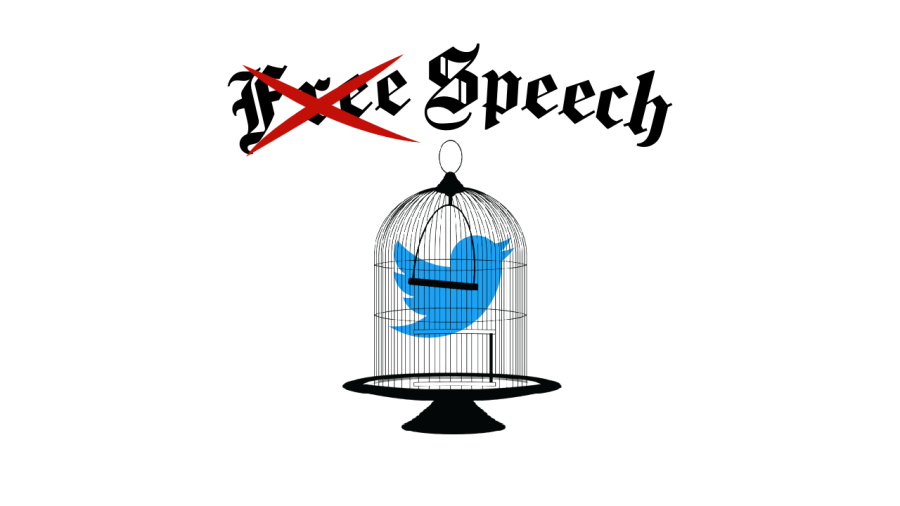Elon Musk Does Not Understand Free Speech
December 1, 2022
On October 27, Tesla CEO Elon Musk acquired the social media platform Twitter, sparking heated debates online about what this means for freedom of speech and disinformation on the platform.
Musk shared his foremost goal as the new CEO of Twitter in a tweet on the 27th. He stated that it was to “help humanity” by creating a “common digital town square” where “a wide range of beliefs can be debated in a healthy manner.”
As a self-proclaimed “free speech absolutist,” Musk defines his position as merely against “censorship that goes far beyond the law.” However, this definition is misleading at best and harmful at worst.
Free speech is the core of a democratic society, protecting individuals from restriction of their speech under the law. A common misconception and readaptation of the term on social media seems to be a demand for unfettered expression, deeming any attempt at restriction as left-wing and censorship.
Hannah Konezny, ‘24, said “a lot of people in America think that free speech is being able to talk without consequences, but, in reality, there are.” Even under the law, there are restrictions on speech; one may not yell “fire” in a crowded theater, for example.
Additionally, the fact that Twitter is a private institution gives it a right to censor and remove anyone they would like. Freedom of speech has no meaning outside of a governmental context.
Elon Musk claims that Twitter formerly had a “left-wing bias,” citing the ban on the account of former President Donald Trump as an example. Directly after the violent insurrection attempt at the capitol on January 6th, Twitter permanently suspended Trump’s account to prevent “the risk of further incitement of violence.” Considering the central idea for the incursion was the prevention of a supposedly fraudulent election’s certification, Trump’s incessant claims of election fraud during the attack only added fuel to an already raging fire.
Therefore, banning Trump was an easily-justifiable prevention of further violence, especially in the climate of fear and uncertainty in the wake of the event, wherein many state capitals prepared for similar attacks.
The true nature of what the “free speech” ideal represents to Musk’s supporters is best illustrated by the 500% increase in the use of the n-word just 12 hours after Musk’s purchase of Twitter. Even without the repeal of any restrictions, Musk’s “free speech” rhetoric has emboldened its true supporters: bigots, trolls and agitators.
It is easy to dismiss regulation of misinformation and disinformation as simple censorship, but sociologists and political theorists disagree. In an interview with UCR News, Kevin Esterling, a professor of political science at the University of California Riverside, said he considers information and ideas shared on social media to be a part of a market. In an ideal world, truth and lies could compete fairly, misinformation could be debunked, and only true stories would spread.
However, according to a 2018 study by MIT, false news articles are 70% more likely to be retweeted than true ones, often due to their inflammatory nature. As a result, many Americans perceive their reality as significantly different from that of others, a phenomenon that has only worsened over the past decade with the rise of social media networks and echo spheres.
IB Theory of Knowledge teacher Ms. Duncan worries about the spread of misinformation as “a danger to our political system.”
“We must be able to agree on some basics,” she said, “and that becomes difficult in an atmosphere of uncertainty and mistrust.”
The current system of promoting and incentivizing the spread of false and hateful information represents a “market failure,” said Esterling, that can only be prevented through regulation.
This is the paradox of intolerance: in order to maintain a tolerant society, society must be intolerant of intolerance. Otherwise, a society that is tolerant without limit, like Elon Musk’s imagined Twitter, will be taken over and destroyed by the intolerant.
Twitter is a massive social network, and many people’s sole daily exposure to the world. Without restrictions, hateful and outright false information will increase in its transmission and corruption, greatly endangering our social and political systems. The issue is not freedom of speech, but those who exploit it to harm others and society at large.






























